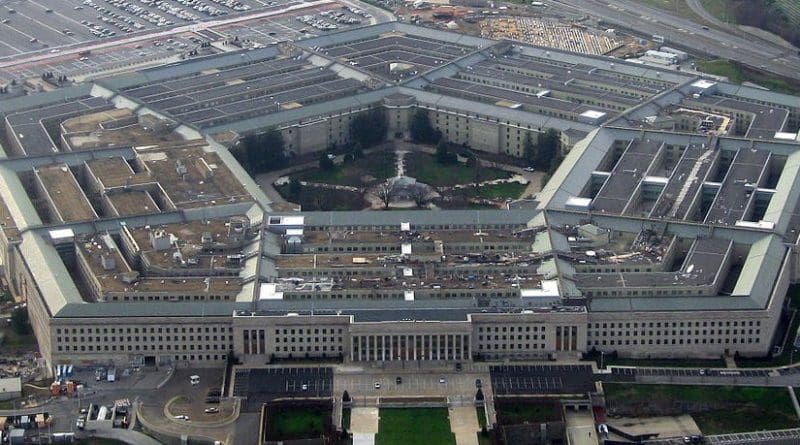Pentagon Faces $450 Billion Budget Cuts
By PanARMENIAN
Defense Secretary Leon Panetta warned Congress Thursday, Oct 13 that cutting any more than roughly $450 billion from defense spending over the next 10 years would devastate the military.
“I don’t say it as a scare tactic, don’t say it as a threat,” Panetta told the House Armed Services Committee. “It’s a reality.”
He and Army Gen. Martin Dempsey, chairman of the Joint Chiefs of Staff, told lawmakers that deeper cuts would mean reductions in the force, making it difficult to keep troops in all critical areas around the globe.
Despite questions from the committee members, Panetta and Dempsey would not detail any planned spending cuts or give specifics on how U.S. military strategy might be affected. They said they are still reviewing the issues.
Panetta urged Congress to work with him on the budget, saying lawmakers must consider cuts to mandatory federal spending programs and increases in revenues.
Rising deficits and deep debt have forced the federal government to slash spending — even at the Pentagon, whose budget nearly doubled to some $700 billion in the 10 years since the Sept. 11 terror attacks.
The debt accord reached this past summer between President Barack Obama and congressional Republicans calls for a $350 billion cut in projected defense spending over 10 years. The Pentagon and House committee members say the actual number is more than $450 billion. The difference depends on the budget baseline that is used.
But Panetta and defense hawks in Congress fear much deeper cuts could come from the latest round of budget machinations.
Panetta said the military has been stressed by a decade of fighting, squeezed by rising personnel costs, and is in need of modernization. In the last decade the military has focused heavily on fighting insurgencies and terrorists in Iraq and Afghanistan, rather than on the skills and equipment needed to fight modern armies, navies and air forces.
Meanwhile, international security issues have grown more complex, Panetta said, noting the United States must be prepared to continue dealing with violent extremism as well as the nuclear ambitions of Iran and North Korea, the prospects of cyber attackers who may target American infrastructure, and other threats.
The possibility of a residual U.S. force remaining in Iraq after the end of the year, the drawdown in Afghanistan and the fight against terrorism also were likely topics for Panetta, who served as CIA director before taking over the Defense Department.
Panetta repeated the warning he issued earlier this week — saying that some lawmakers’ favored programs could be on the chopping block.
Recalling his time as a member of the U.S. House, Panetta noted that a military base in his district was cut in 1994.
“I lost Fort Ord, 20 percent of my local economy,” he said. “We have to do this right. We can do this right.”
The special bipartisan deficit-reduction supercommittee must come up with at least $1.2 trillion in cuts from all federal spending by Thanksgiving, and defense could face additional reductions. If the panel fails to come up with a proposal, or Congress rejects its plan, automatic cuts of $1.2 trillion kick in, with half coming from defense.
Panetta said those cuts would be disastrous and urged Congress to ensure they don’t happen. Republicans and Democrats on the Armed Services Committee will be making their recommendations to the supercommittee by week’s end.
Panetta said the Pentagon is taking a comprehensive look at its spending, from overhead costs to the size of the force as the wars in Iraq and Afghanistan wind down, from modernizing weapons to personnel.
Rep. Adam Smith of Washington state, the top Democrat on the House panel, said in a recent interview that it would be wise for the Pentagon to provide details on its strategic review as Congress considers spending cuts.
“I urge them to get it out sooner,” Smith said. “We’re already deep into” the next budget, AP reported.

